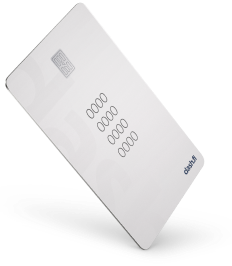Effectively managing money is one of the most essential but challenging tasks for a growing business. Creating scalable financial processes will help you handle growth without overwhelming your accounting and bookkeeping teams.
Settle and dash.fi are both online platforms designed to help ecommerce businesses manage their money and put it to use. If you’re looking for help handling your company’s finances, we’ll break down the pros and cons of the two services.
What is Settle?
Settle bills itself as “the all-in-one platform built to help e-commerce brands scale seamlessly.” It does this by offering a few different tools.
Financial Dashboard
The first thing that business owners will see when using their Settle account is their financial dashboard. This is a one-stop shop to see all of your company’s essential financial data. You can view bills, manage invoices, and track payment statuses from a single screen.
From the dashboard, you can split or defer payments in multiple currencies and even apply for financing to give you more time to pay a bill.
Invoice Management and Payment Tools
Settle makes it easy to manage and pay invoices your company receives.
When you upload an invoice, Settle automatically pulls out important information, such as the vendor, amount, due date, and terms. You can then select how to pay the invoice directly from Settle, including making ACH transfers, wires, or sending a paper check.
If you’re operating internationally, Settle supports dozens of foreign currencies, including euros, yen, francs, pounds, kroner, and more.
Settle lets you schedule payments to go out immediately or at a set future date. If you need more time to make the payment, you can also apply for Extended Payment Terms (EPT), in which, if approved, Settle will pay your vendor on time for a fee, giving you more time to come up with the funds.
Accounting Integrations
Settle integrates with some of the most popular accounting programs, including Quickbooks and Xero. It is currently working on a NetSuite integration to make it easier for businesses to make the most of its financial dashboard.
Automated Approvals
You can set up automations to handle invoice approval and payment, helping you avoid some of the hassles of dealing with minor expenses. You can design rules or dollar thresholds for these automated processes, giving you plenty of flexibility with your workflow.
Pricing Levels
Settle offers four service tiers, letting companies choose the best fit for their needs.
The Starter service is free but limits you to 10 transactions per month. It also imposes a $5 fee for wire transfers and limits your ability to set specific permissions for individual users or create automated payment approval rules.
The Pro service unlocks Settle’s full suite of tools, drops wire fees to $0, and allows for 50 transactions per month. It costs $90 per month.
Premium gives customers a limit of 200 transactions per month for a monthly cost of $290. Larger companies that need support for more transactions can purchase a customized Enterprise plan at prices that depend on their specific needs.
Pros & Cons of Settle
Before signing up for Settle, you should weigh its pros and cons.
Pros
Free tier of service lets you test it before you commit
Accounting software integrations
Free ACH and wire transfers for most levels of service
Easily apply for financing to pay invoices
Cons
Monthly transaction limits
Does not offer a corporate card or virtual cards
Settle vs. Dash.fi
Settle and dash.fi are online financial companies aiming to help ecommerce businesses grow. If you’re considering working with Settle, you should look at how it stacks up against the competition.
Pricing
As a business owner, you always search for ways to save money and reduce your company’s expenses. That means you want to find inexpensive services that offer a strong value.
Settle is appealing because it’s free to try. However, even its cheapest paid plan costs $90 per month, which is more than $1,000 yearly.
By comparison, dash.fi charges $695 per year, which is a noticeably lower cost. Like Settle, dash.fi doesn’t charge fees for services like wire transfers.
Virtual Cards
Settle doesn’t currently offer a business credit card or virtual cards for your employees. The primary way it offers financing is via its ETP program, letting you borrow with fees from Settle to pay a vendor.
In contrast, dash.fi offers a corporate credit card with an unlimited number of virtual cards. You can set spending limits on individual cards and track their use, making monitoring spending by specific employees or departments easy.
However, Settle does plan to offer a virtual marketing card in the future, with its website claiming that the card is coming soon.
Rewards
Because it doesn’t currently offer a business credit card, Settle doesn’t offer cash back or other rewards.
Dash.fi’s card comes with up to 3% cash back on advertising purchases for the first two months you have the card. You can also negotiate custom rewards agreements to help your business earn more with dash.fi.
Accounting Integrations
Both Settle and dash.fi work with popular accounting and bookkeeping tools, such as Quickbooks. You can easily sync data between your accounting tools and Settle or dash.fi to make managing your money easy.
Requirements
Settle’s eligibility requirements are minimal—new users must be at least 18, can only use the platform for business purposes, and must agree to provide required documentation for verification.
Only companies registered in the United States are eligible to use dash.fi’s platform and services. However, if you want to get dash.fi’s credit card, the good news is that there is no credit check and no personal guarantee requirement.
The Final Word
Settle and dash.fi offer similar services, but Settle tends to focus on financing for invoices and other bills, while dash.fi focuses on corporate and virtual credit cards. Which of the two services you choose will depend on your company’s specific needs.
